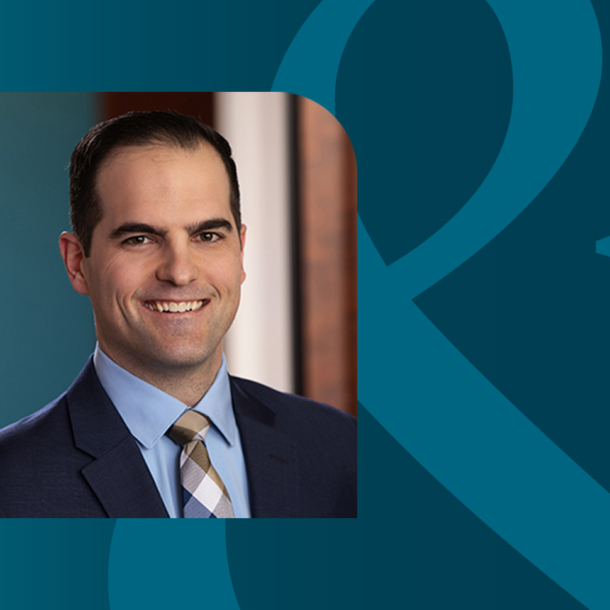Perspectives
Keep
Reading

2025 Year-End Financial Planning Reminders
Wealth Insights | InsightGW&K Wealth Strategist Melissa Jacoby shares strategies that can enhance tax efficiency and strengthen your long-term financial well-being.
Read Article
Diversification: A Reminder of the Bond Market’s Role
Wealth Insights | InsightDiversification matters: Bonds historically outperform cash in downturns, offering principal protection and steady income alongside stocks.
Read Article
Navigating the Evolution of Private Wealth Management
Wealth Insights | InsightGW&K’s Director of Private Wealth Management, Dan Fasciano, shares his thoughts about the state of the wealth management business today and offers valuable advice for those seeking to secure their financial future.
Read ArticleThis Website Uses Cookies
We use cookies to improve your experience on our website. To accept cookies click Accept & Close, or continue browsing as normal. For more information or to learn how to opt out of cookies, please see our cookie policy.
Accept and Close-
Latest Insight
Municipal Bond Snapshot January 2026
Municipal Bond
Entering February, the outlook for municipal bonds remains favorable: Supply and demand are broadly in balance, credit quality is strong, and tax-equivalent yields are attractive.
Read Article
Considerations For 2025 And Future Tax Years
One Big Beautiful Bill
The One Big Beautiful Bill Act (OBBBA), signed into law by President Trump on July 4, 2025, introduces sweeping reforms with far-reaching implications across multiple industries and financial sectors. This new legislation significantly affects wealth transfers, tax strategies, and asset protection, particularly for business owners and high-net-worth individuals.
It is essential to understand how these changes may impact your financial situation and determine whether adjustments to your current plan are necessary. The following summary outlines key opportunities and challenges in the context of financial and estate planning.
1.Estate and Gift Tax Exemptions
Effective January 1, 2026, the lifetime exemption for estate, gift, and generation-skipping transfer (GST) taxes is now permanently set at $15 million per individual ($30 million per couple), indexed annually for inflation.
With a 40% tax rate on amounts exceeding the exemption, now is an opportune time to review your estate plan, gifting strategies, and use of lifetime exemptions. Several planning techniques can help reduce taxable estates, including:
2. Annual Exclusion Amount
Although not part of the OBBBA, the IRS has increased the annual gift tax exclusion to $19,000 per recipient for 2025. This is the amount an individual may gift to an unlimited number of recipients each year without filing a gift tax return or reducing their lifetime exemption.
In addition, taxpayers can make unlimited payments directly to medical or educational institutions on behalf of another individual with the same tax exceptions.
3. Charitable Giving
For taxpayers claiming the standard deduction, the OBBBA limits charitable deductions to $1,000 for individuals and $2,000 for married couples filing jointly.
For those who itemize deductions, the law introduces new restrictions beginning in 2026:
Consider whether accelerating or delaying charitable contributions may be beneficial under the new rules. For many, Donor-Advised Funds (DAFs) remain a powerful tool, allowing you to make charitable contributions now (and receive current deductions), while distributing to charities in future years.
4. State and Local Taxes (SALT)
The OBBBA increases the SALT deduction cap from $10,000 to $40,000 for the years 2025 – 2029, with a 1% annual increase. In 2030, the cap reverts to $10,000. Note that this increase is phased out for higher-income households.
For residents of high-tax states, it may be strategic to manage Modified Adjusted Gross Income (MAGI) to take full advantage of the deduction. Tactics include:
5. Trump Accounts
Trump Accounts are tax-deferred investment accounts designed for children under 18 who are US citizens or residents with a valid Social Security number. These accounts allow:
Key Features and Limitations:
Next Steps
Many of the changes introduced by the OBBBA are complex and interdependent. However, with careful planning and guidance from qualified professionals, individuals and families can navigate these changes effectively and take advantage of several taxpayer-favorable opportunities.
Contact our Private Wealth Team to discuss further.
Melissa F. Jacoby
Vice President, Wealth StrategistDisclosures
GW&K is not authorized to provide tax, legal, or accounting advice. The information provided is for general informational purposes only and is not written or intended as an individualized recommendation or substitute for specific legal or tax advice, within the meaning of IRS Circular 230 or otherwise. Tax laws and regulations are complex and subject to change, which can materially impact investment results. The information contained herein is obtained from sources believed to be reliable, but its accuracy or completeness is not guaranteed. Individuals are encouraged to consult with a professional tax, legal or accounting advisor regarding their specific legal or tax situation